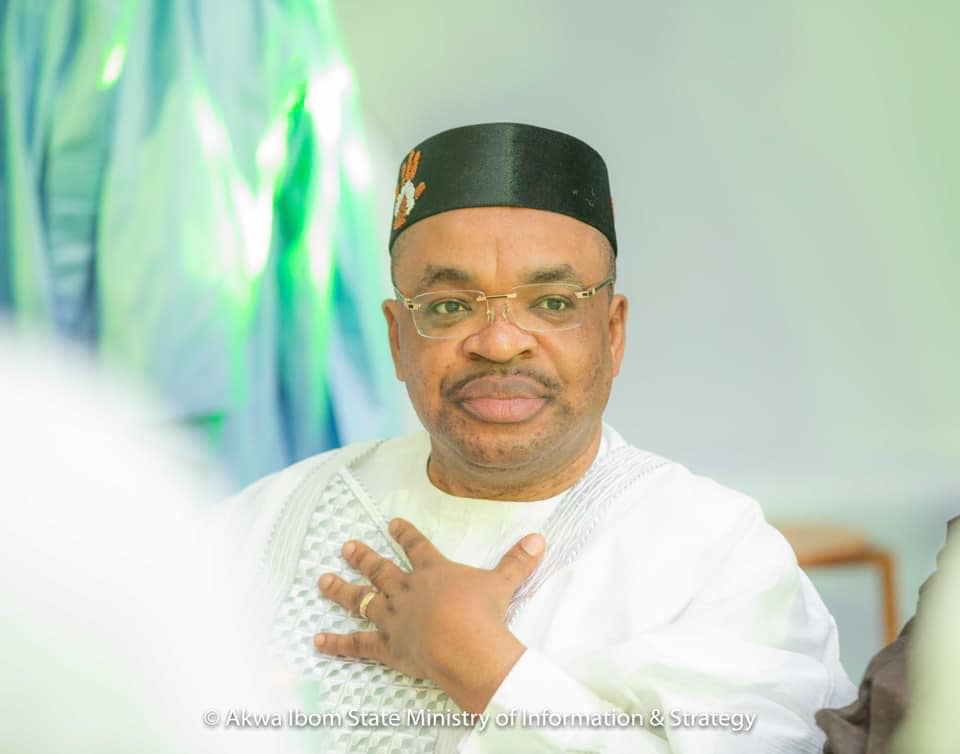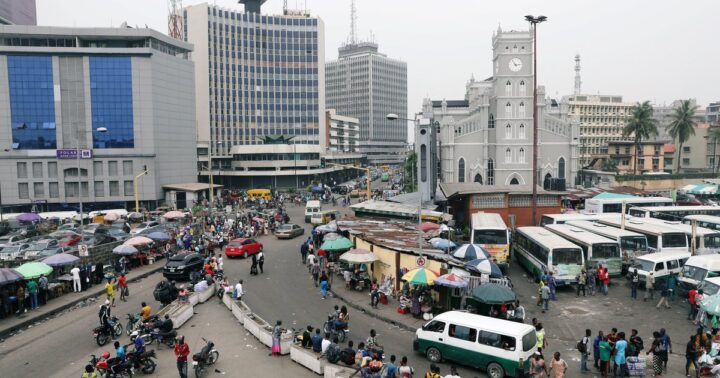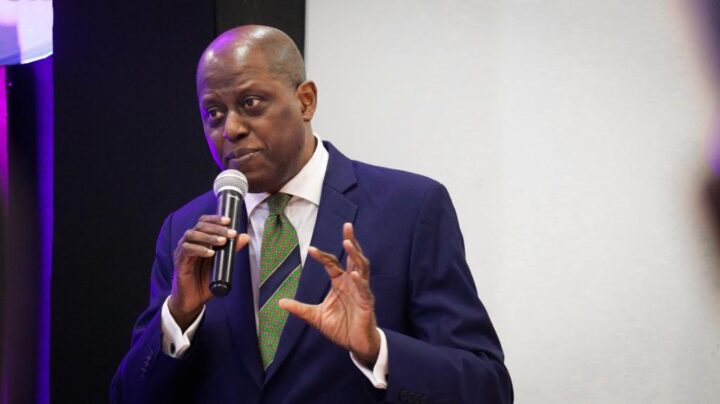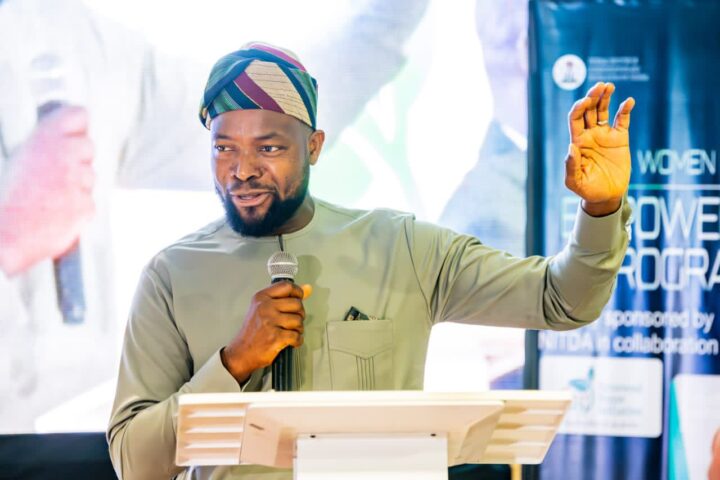Something a bit unusual occurred in oil-rich Akwa Ibom state between May 2015 and May 2023, which will require more observation in the short-to-medium term for appropriate economic policymaking. The Akwa Ibom State Government (AKSG), led by former Governor Udom Gabriel Emmanuel, was building manufacturing companies and state-owned enterprises (SOEs). This economic approach is unusual, given that the conventional policy in recent decades has been for the withdrawal of government from the ownership and management of businesses. The policy thrust of Udom Emmanuel on the government’s economic role is however ripe for discourse, given that contemporary projections on the ability of the private sector to deliver on modest petroleum prices, fair exchange rate, and other economic outcomes in Nigeria, are increasingly being called to question.
The ‘unusualness’ or contradiction in the industrial economic policy approach by Udom Emmanuel is further highlighted by his professional background. An accounting graduate, chartered accountant, and former audit manager with PWC, he is a former senior banking executive with a Tier 1 Nigerian Bank that also operates across other African countries and continents. He therefore comes from the private sector, which is attributed with better business skills than government — and with good reason.
To understand the contemporary thinking towards non-participation of government in enterprises, a bit of economic history is appropriate. Following Nigeria’s independence in 1960, SOEs became the product of government policies. It was situated within the assessment that SOEs are better suited to providing jobs and services than the private sector. As also was the fad with other developing countries, the establishment of SOEs was influenced by the import-substitution industrialisation strategy. The assessment was that the indigenous private sector was still emerging, and therefore lacked the capital and managerial capacity for large businesses and industries.
The government was therefore the key propeller for industrial growth as SOEs were established across different sectors while the government also acquired controlling stakes in many private companies. The need to control the ‘commanding heights’ of the economy, as well as protect national interest as part of the ‘Indigenisation Programme’ of the 1970s were causative factors for that economic approach. The SOEs established and owned by the government included factories, shipping companies, airlines, steel mills, hotels, agricultural companies, food companies, and vehicle manufacturing plants, among others.
Advertisement
The economic and financial results of this economic approach were however unsatisfactory, as many of the SOEs contributed to the increase in fiscal balance sheet deficits of government. Due to the decline in revenue from crude oil and commodities in the 1980s, the government was compelled to implement a structural adjustment programme which influenced the decision to sell some of the SOEs. This led to the enactment of the Privatisation and Commercialisation Decree of 1988 which set up the Technical Committee on Privatisation and Commercialisation (TCPC).
The TCPC concluded its initial tasks and from its recommendations, the then federal military government promulgated the Bureau of Public Enterprises Act of 1993, which repealed the 1988 Decree and set up the Bureau of Public Enterprises (BPE) to implement the privatisation programme in Nigeria. Furthermore, the federal government, in 1999, enacted the Public Enterprises (Privatisation and Commercialisation) Act, which created the National Council on Privatisation (NCP). The NCP, chaired by the vice president of Nigeria has the overall responsibility of formulating and approving policies on privatisation and commercialisation in Nigeria, while the BPE is the secretariat and implementation arm of the NCP under the 1999 Act.
The BPE has privatised or commercialised over 234 public enterprises and assets across different sectors with many of the enterprises posting impressive performances under new private sector owners. One such sector that exemplifies and justifies the privatisation and commercialisation policy approach is the information and communications technology (ICT) sector.
Advertisement
With Decree 75 of 1992 that established the Nigerian Communications Commission (NCC) and the National Telecommunications Policy (NTP) of 2000, which was given legal backing by the Nigerian Communications Act (NCA) of 2003, GSM licenses were transparently auctioned to private telecommunications companies while the monopoly of the government-owned Nigerian Telecommunications Limited (NITEL) was broken. Owing to these policy changes, there have been increases from 400,000 fixed phone lines and less than 200,000 regular internet users in 1999 to 222.5 million phone users and 154.8 million internet users in 2022. Also, the sector’s contribution to gross domestic product (GDP) has risen from 3.08% in 2001 when the significant implementation of the policy began, to 16.22% of GDP in 2022.
As a further demonstration of the government’s belief in the leading role of the private sector in the provision of critical services such as infrastructure, the Federal Government of Nigeria in 2008, established the Infrastructure Concession Regulatory Commission (ICRC) under the Infrastructure Concession Regulatory Commission Act, 2005. The ICRC regulates public-private partnership (PPP) endeavours of the federal government, towards addressing Nigeria’s physical infrastructure deficit for economic development.
These therefore explain the ‘unusualness’ of the policy decision by Udom Emmanuel to establish SOEs as governor of Akwa Ibom. But there may be a justification for his policies. The manufacturing sector of an economy is normally labour-intensive and therefore suitable for a higher quantum of job creation, compared to the service sector. In Nigeria, the manufacturing sector’s contribution to GDP is low, at about 7% of GDP, and just 3% of total revenues from exports. Export value per capita is $160 for Nigeria, compared to $7,100 for Malaysia and $3,600 for Vietnam.
From a continental perspective, Africa’s share of the global value chain is a meagre 1.9%, leaving 1.3 billion people of the continent and their economies at the bottom of global value chains. This may therefore explain Udom Emmanuel’s decision to establish SOEs in Akwa Ibom, especially as his predecessor in office concentrated more on physical infrastructure. And what are some of the SOEs established by Udom Emmanuel as Akwa Ibom state governor?
Advertisement
First will be the more visible Ibom Air. Anyone who remembers the sad tale of the once glamorous 30-aircraft fleet of federal government-owned Nigeria Airways, which was liquidated in 2004 due to mismanagement, will be astounded by the success of Ibom Air. Commencing operations on June 7, 2019, as the first state government-owned airline in Nigeria, Ibom Air now has seven aircraft, flies to various destinations, has operated 23,630 flights and carried close to two million passengers as of July 13, 2022. 10 new Airbus aircraft are expected to be added to the company’s fleet in 2023, as it expects to commence regional operations plus a Maintenance Repair and Overhaul (MRO) facility.
Next is the Jubilee Syringe Manufacturing Company Limited, projected as the largest disposable syringe factory in Africa, with a production capacity of 400 million syringes per annum. The company produces three types of disposable syringes (2ml, 5ml and 10ml), using advanced technology from high-quality medical-grade raw materials.
Also established is the digital electric Metering Solutions Manufacturing Services Limited, with a modern 20,580sqm facility that has the capacity to produce 3 million meters annually, on a three-shift pattern. It is one of the largest indigenous suppliers of electric meters in Nigeria, and currently supplies at least 250,000 meters, including for international markets.
The Lions Plywood and Timber Factory located in Onna local government area (LGA) with extensive value chain opportunities; the Ibom Agricon Rice Processing Mill in Ini LGA which produces the Family Rice; and the SACAM Afro Processing Rice Mill produces the Rose Rice brands, are some of the industrial enterprises established by the former governor.
Advertisement
Still in the agriculture and agro-associated sectors, there is the 400,000 metric tons per annum Greenwell Fertilizer Blending Company at Abak that produces different kinds of fertilizer; and the St. Gabriel Coconut Oil Factory in Mkpat Enin LGA, inaugurated in 2022, and reputed as the biggest coconut oil refinery in Africa, with a one-million-nuts-a-day processing capacity.
The Palm Kernel Processing Limited at Ukanafun LGA was commissioned on February 5, 2019, by Udom; while the Ufani Palm Processing Factory was also established to harness the full value of the lucrative oil palm, for which the state is among the largest producers in the country. The Kings Flour Mill located in Mkpok-Okad in Onna LGA, consists of 4.892m2 of closed area, with 47.406m2 of open area factory space. The Dakkada Cottage Industries in Itam Industrial Layout, Itu LGA, provide shared business facilities to a number of manufacturing outfits that produce plastic, toothpicks, pencils and tissue.
Advertisement
On larger scales and at various stages of completion are the Sterling Petrochemicals and Fertilizer production factory at Eastern Obolo LGA; the $1.4 billion Ammonia and Fertilizer plant with funding from Nigerian Sovereign Investment Authority (NSIA) to be completed by 2025; and the Liberty Oil and Gas Free Trade Zone at Ikot Abasi LGA, established in July 2020 with an investment commitment of $15 billion. The Liberty Free Zone has the Nigerian National Petroleum Corporation (NNPC), Sterling Petroleum and Fertilizer Limited, and the Black Rhino Group (constructing a power and gas processing plant) as equity investors, and is the largest Oil and Gas Free Zone in West Africa by landmass, measuring 50,215 hectares across six LGAs. Its features at full roll-out will include a Petroleum and Energy District; NNPC Logistics Centre; Business and Industrial District; Agro-allied Industrial District; and Heavy Industry District. On a similar large scale is the Ibom Industrial City. The city contains an industrial park, Landing Jetty in Onna, and the Ibom Deep Seaport (IDSP) which is at the procurement stage.
It is important to state that these impressive industrial enterprises are managed by private sector specialists, though these do not dilute the fact that they are Akwa Ibom SOEs. But as a former senior banking executive and key private sector player, did Udom Emmanuel have certain in-depth knowledge about the limitations of the Nigerian private sector to deliver on certain aspects of industrial development, which other policymakers are not aware of?
Advertisement
This question is important as the policies of contemporary officials, many with private sector backgrounds like Udom Emmanuel, are still hinged on the private sector taking the lead in industrial development. And there are also unanswered questions on political risks that such investments can have in a climate of intense politics. What happens if a succeeding government does not share a similar vision of non-interference in daily management? What happens if another political party wins elections in the state and decides to impede the performance of these SOEs for political reasons?
Viewed differently, Udom Emmanuel’s industrial and investment acumen as governor elicits questions as to why he did not establish a state-owned oil company and successfully bid for an Oil Prospecting License (OPL), Oil Mining Lease (OML) or a marginal field. This would have been similar to what neighbouring Bayelsa state had with OML 46 Atala Marginal Field, though the oil field could not be retained due to management and regulatory reasons. A producing oil field owned by the state government could have provided some level of full backward integration for the refinery that the government has some stake in.
Advertisement
Also, given that ICT contributes 16.22% to GDP and with the earnings the state got from its shares with ECONET, the preceding GSM telecommunications company for Airtel Nigeria, it is also surprising that Udom Emmanuel could not get neighbouring and similar states to bid for a 5G license in 2021 and 2022, or at least invest in a telecommunications company that made a bid for a 5G license. Perhaps, the politics did not align. The 21-storey Dakkada Towers built by the Udom administration and completed in 2021, could easily provide office space for either a petroleum company or a telecoms company.
It remains to be seen if the Udom Emmanuel economic approach, which may have some similarity with Chinese SOEs, is the way to go for Africa, especially as much touted industrialisation for job creation is yet to occur. It may also be that the role of the state is gradually reversed beyond just creating an ‘enabling environment’ for privately developed industries to actual industrial development. As mentioned, it is a period of observation to see how economic and political factors evolve before the economic model can be wholly recommended.
Udom’s banking experience may reveal a home truth about the unwillingness of Nigeria’s private sector to heed government calls to establish factories, not just services. It may therefore mean that Nigeria should not have too much faith in hoping for the private sector to do the industrialisation ‘magic’ alone. If his approach works, we may have to thank Udom Emmanuel for a practicable economic approach and policy towards increased industrialisation.
According to Akinwumi Adesina, the president of the African Development Bank (AfDB) at a Manufacturers Association of Nigeria (MAN) lecture on October 26, 2021: “It is time to re-imagine the industrial manufacturing in Nigeria”. Though this quote is within the context of applying the Internet of Things (IoT) and emerging technologies for more efficient industrial manufacturing, there might however be a need to re-imagine the sector within the role of government involvement in industrial manufacturing, given what Udom has done in the last eight years.
It will therefore be interesting to know what MAN, the Nigeria Economic Summit Group, and the Organised Private Sector think about the state-led industrial development model. And what does Akinwumi Adesina think about Udom Emmanuel’s approach to industrial development?
Perhaps, we may yet not know the opinion of private sector leaders or AfDB President to Udom Emmanuel’s industrial approach. But as we observe current political office holders and their policies’ increasing search for private sector investment that establishes factories for employing their youth bulge, it becomes important to assess whether it is largely a wild goose chase, and if the Udom Emmanuel industrialisation approach is what Nigeria and Africa needs in contemporary times.
Now that he is out of political office, perhaps the time may soon come for Udom Emmanuel to further conceptualise his philosophy for industrial development in Nigeria and Africa, while the outputs, outcomes and economic results of his industrial policies are observed for validation. With Udom Emmanuel, the industrialisation discourse continues.
Uwanaka writes from African University of Science and Technology, Abuja. He can be reached via [email protected]
Views expressed by contributors are strictly personal and not of TheCable.
Add a comment







